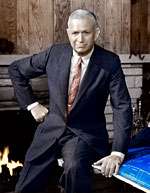A Quote by Brad Goreski
I believe that things should be let go once they are discussed. Apology accepted. End of story.
Related Quotes
My own experience is that once a story has been written, one has to cross out the beginning and the end. It is there that we authors do most of our lying . . . one must ruthlessly suppress everything that is not concerned with the subject. If, in the first chapter, you say there is a gun hanging on the wall, you should make quite sure that it is going to be used further on in the story.
One of the things on a very practical level as an actor or actress is that when you do a play, you do the entire story every time you do it. You have eight shows a week. You have a rehearsal process of four to five to six weeks. And then once you're in performance, everybody else goes away and you're there with your fellow actors and the audience and the material and your life becomes about that. And you go through the story from the beginning to the end every time you do it and depending on how long you do it, that's where the craft comes in.
Normal people, want to be accepted. Screwed up people, want to be accepted. It's one of the few things we have in common. My whole life, all I ever wanted was my dad to pat me on the top of the head and go, Who's a good boy ? Who's a good boy? But, instead, all he ever did was wipe peanut butter on the end of my nose and laugh while I tried to lick it off.
Once my loved one accepted the diagnosis, healing began for the entire family, but it took too long. It took years. Can't we, as a nation, begin to speed up that process? We need a national campaign to destigmatize mental illness, especially one targeted toward African Americans. The message must go on billboards and in radio and TV public service announcements. It must be preached from pulpits and discussed in community forums. It's not shameful to have a mental illness. Get treatment. Recovery is possible.
Request an apology when you believe you deserve one, but don't get in a tug of war about it. Instead, be a role model and tender a genuine apology yourself when an apology is due. Your willingness to apologize can be contagious and models maturity for your partner. Also, your non-apologizing partner may use a nonverbal way to reconnect after a fight, defuse the tension, or show you he's in a new place and wants to repair a disconnection. Accept the olive branch however it's offered.







































